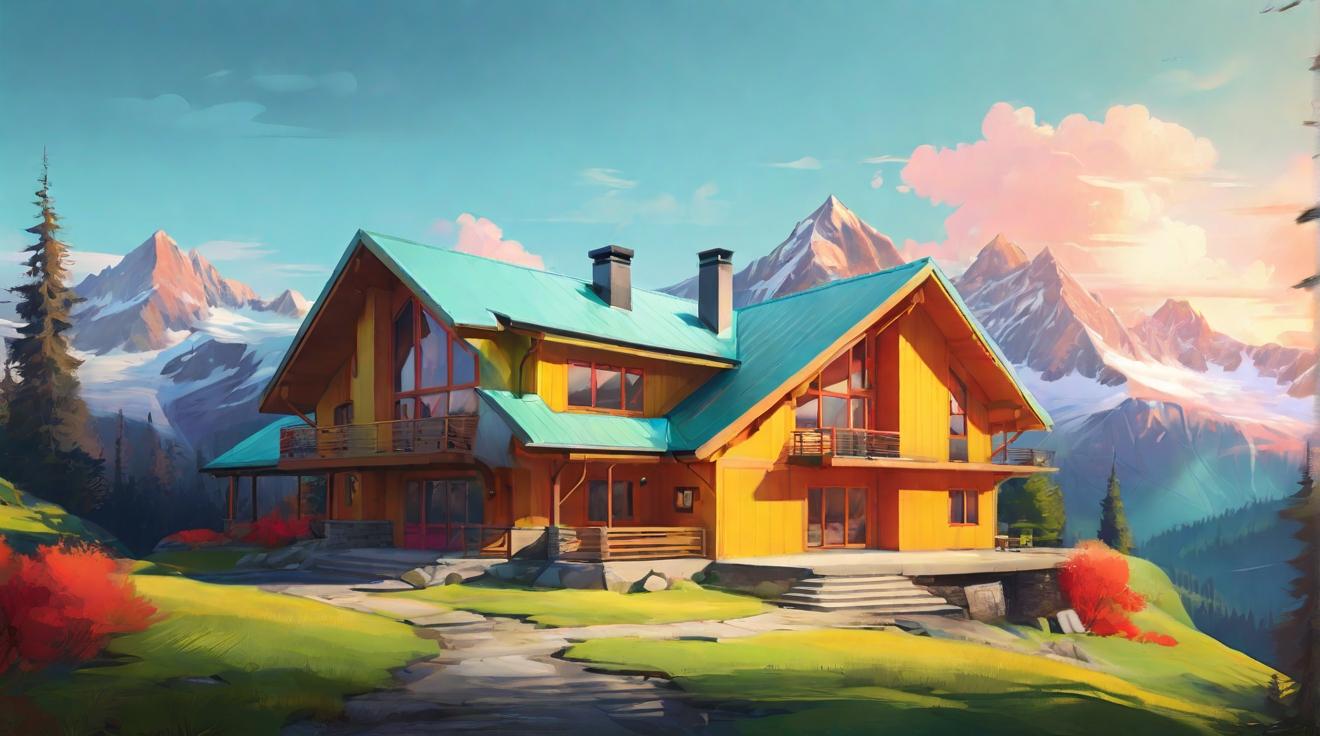Airbnb vs. Mountain Cabin Retreats: Trends in Alpine Accommodation Experiences – A SWOT Comparison
In the ever-evolving landscape of travel and accommodation, the battle for the perfect alpine experience has taken a fascinating turn. Airbnb and traditional mountain cabin retreats are at the forefront of this transformation, offering unique propositions to travelers seeking solace or adventure in the mountains. Our SWOT analysis delves into the strengths, weaknesses, opportunities, and threats of each, shedding light on the current trends in alpine accommodation experiences.
Strengths: The Competitive Edges
Airbnb has revolutionized the travel industry by providing a platform for homeowners to rent out their properties, turning ordinary homes into potential retreats for travelers. Its expansive inventory offers something for everyone, from budget-friendly rooms to luxurious homes. The platform's strength lies in its flexibility, diverse offerings, and user-friendly interface, making it a go-to for travelers seeking unique and personalized accommodation experiences.
On the other hand, mountain cabin retreats offer a traditional and rustic charm that is difficult to replicate. These retreats provide an authentic mountain experience, often located in secluded areas close to nature. Their strength lies in the authenticity and serenity they offer, making them ideal for travelers looking to disconnect and immerse themselves in the tranquility of the mountains.
Weaknesses: Areas for Improvement
Despite its popularity, Airbnb faces challenges with consistency and quality control. The experience can vary widely depending on the host, leaving some guests disappointed. Additionally, the platform has been criticized for contributing to housing shortages and driving up rental prices in popular tourist destinations.
Mountain cabin retreats, while offering an authentic experience, often lack the amenities and conveniences that modern travelers seek. Additionally, their remote locations can be a double-edged sword, offering serenity at the cost of accessibility and convenience.
Opportunities: Paths to Growth
Airbnb has the opportunity to enhance its offerings by implementing stricter quality control measures and offering more in-depth local experiences. There's also room for growth in sustainable tourism, with travelers increasingly seeking eco-friendly accommodation options.
For mountain cabin retreats, modernizing facilities and incorporating smart technology for self-service can greatly enhance the guest experience. Additionally, marketing these retreats as digital detox or wellness destinations can attract a niche but rapidly growing segment of the travel market.
Threats: Challenges on the Horizon
The regulatory environment poses a significant threat to Airbnb, with many cities around the world imposing restrictions on short-term rentals. These regulations could limit Airbnb's growth and force the platform to adapt its business model.
Mountain cabin retreats face the threat of climate change, with unpredictable weather patterns and natural disasters potentially affecting their appeal and accessibility. The increasing popularity of Airbnb also poses a competitive threat, as travelers looking for unique accommodation options might opt for Airbnb rentals over traditional cabin retreats.
Conclusion
The competition between Airbnb and mountain cabin retreats highlights the evolving preferences of travelers in search of the perfect alpine accommodation experience. While Airbnb offers flexibility and variety, mountain cabin retreats provide authenticity and a deep connection with nature. Both have their unique strengths and weaknesses, with opportunities for growth and challenges to overcome. As the travel industry continues to evolve, so too will the offerings of these accommodation options, shaping the future of alpine experiences for travelers around the world.













